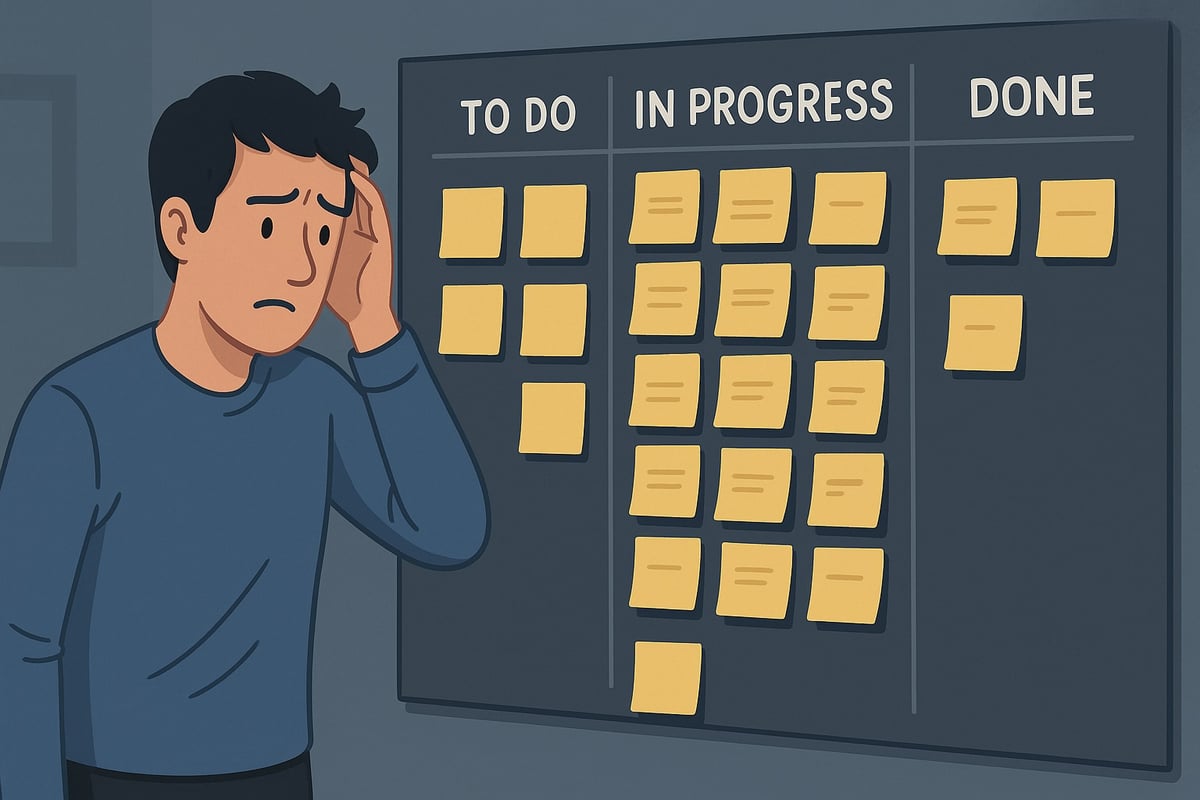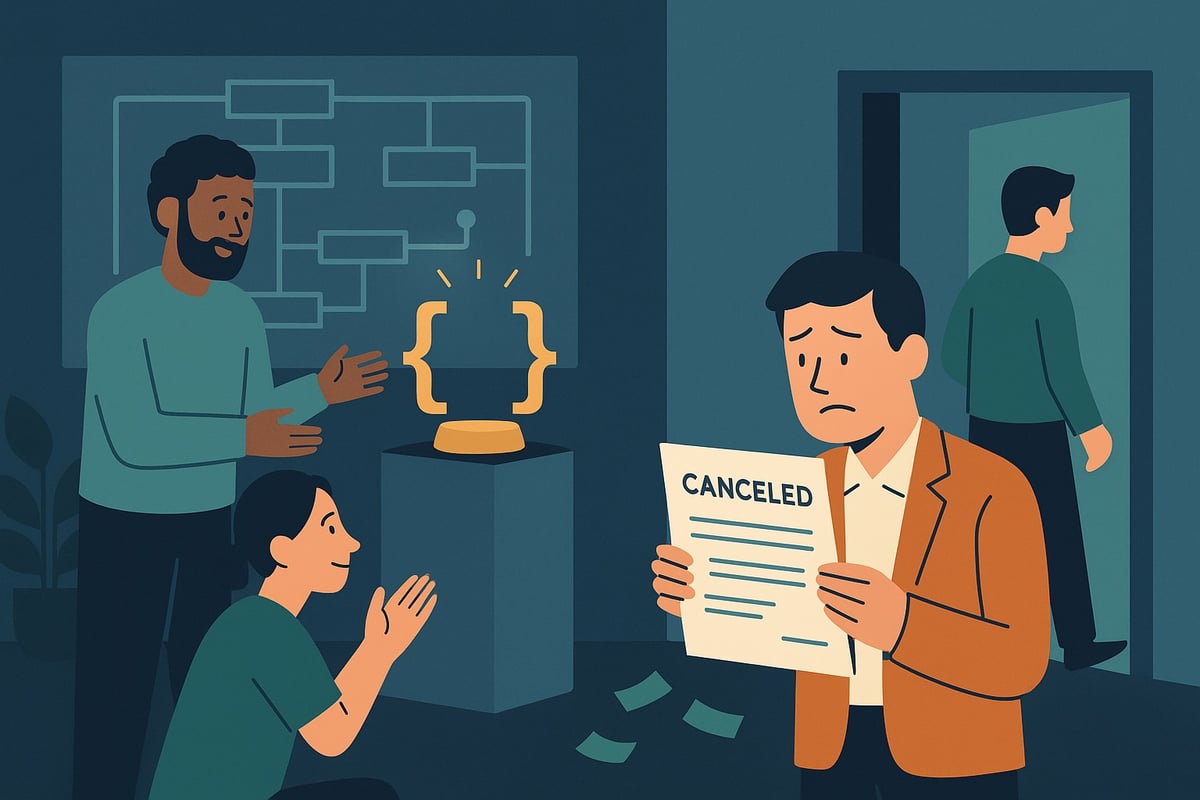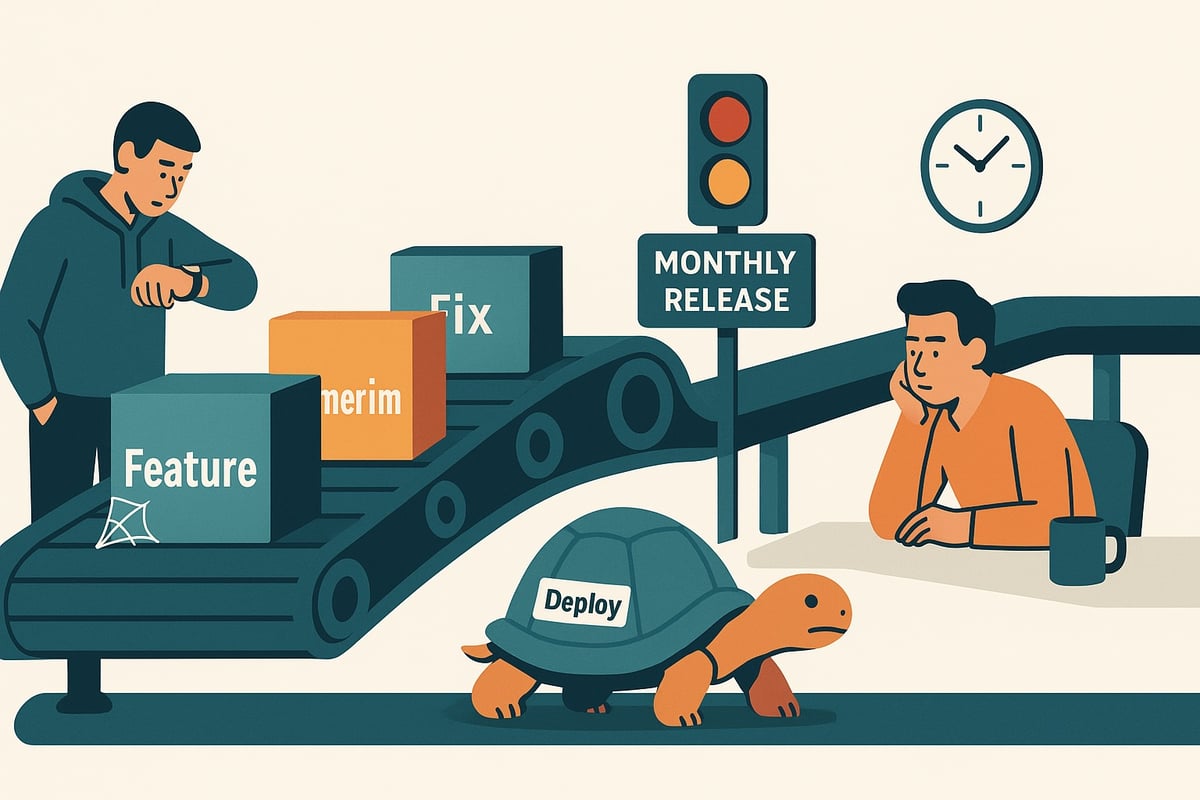There’s a moment in every engineering team’s life when the kanban board tells the real story. fourteen tickets in progress. Four in done. It’s the kind of ratio that makes experienced engineers update their LinkedIn profiles.
The excuses are always the same: “We had to start the urgent feature.” “The critical bug couldn’t wait.” “Product needed just one quick change.” Meanwhile, pull requests age like forgotten leftovers, and nothing actually ships.
Here’s the pattern I’ve encountered across dozens of teams: the highest-performing engineers aren’t writing more code, they’re starting fewer things. The struggling teams? They’re drowning in half-finished work. The silent killer isn’t bad code—it’s too much work in progress.
The Hidden Cost of “Just One More Task”
Throughout my career, I’ve learned one truth: excess WIP compounds like technical debt, but moves three times faster. While technical debt takes months to cripple a team, WIP overload can bring productivity to a halt in weeks.
The pattern is predictable. It starts innocently, a critical bug appears while you’re mid-feature. Then product has “just one quick change.” Before you know it, your team is juggling a dozen half-finished tasks, and nothing ships.
Here’s what the data tells us: according to research on task-switching, developers lose 20-80% of their productive capacity when juggling multiple tasks. Think about that. At best, you’re operating at 80% capacity. At worst, 20%.
The Six Symptoms of WIP Overload
1. Cycle Times That Keep Growing
Little’s Law isn’t just theory—it’s mathematical reality. Cycle Time = WIP ÷ Throughput. Double your WIP, double your cycle time. I’ve watched teams cut their cycle time substantially simply by limiting WIP per developer.
2. The Context-Switching Tax
Every time an engineer switches tasks, they lose 15-25 minutes of productivity. With five tasks in progress, that’s potentially two hours daily lost to mental gear-shifting. One fintech startup discovered their senior engineers were spending hours daily just remembering where they left off.
3. Quality Drops Like a Stone
Split focus leads to weaker mental models. Teams with WIP limits have fewer production incidents than those without. When developers juggle multiple features, they hold incomplete mental models of each, leading to integration bugs and edge cases.
4. Estimates Become Fiction
When everything is “almost done,” nothing is actually done. Projects with high WIP run over schedule on average. Managers lose faith in estimates, teams pad more, and the cycle continues.
5. Feedback Arrives Too Late
The longer work sits unfinished, the staler it becomes. Features deployed weeks after development see more rework than those shipped immediately. Late feedback means bigger rewrites and more waste.
6. Team Morale Evaporates
Nothing kills motivation like the feeling of running in place. Engineers in high-WIP environments are more likely to experience burnout. They’re busy but bored—lots of activity, no accomplishment.
Why Smart Teams Fall Into the Trap
The real problem isn’t the WIP itself, it’s what drives it. Every unfinished task represents an unkept promise, and engineering teams hate breaking promises.
The spiral looks like this:
- Stakeholder requests pile up
- Team starts everything to show “progress”
- Nothing finishes on time
- Trust erodes, so more parallel work begins
- The queue grows until the system breaks
Here’s the uncomfortable truth: saying yes to everything is saying no to shipping anything.
The WIP Limit Solution That Actually Works
Start With Visibility
Before you can fix it, you need to see it. Make WIP visible and painful. I helped one team put a giant LED counter in their workspace showing current WIP. When it hit double digits, it turned red. Peer pressure did the rest.
Set Hard Limits
Start with this formula: WIP limit = 2 × number of developers. Yes, it feels restrictive. That’s the point. You can adjust later, but most teams discover they need less WIP, not more.
Institute “Stop Starting, Start Finishing”
New rule: Nobody starts new work until something ships. Period. That urgent bug? It waits, or something else gets dropped. This forces real prioritization conversations.
Measure What Matters
Track these metrics religiously:
- Cycle time (coding starts to deploy)
- WIP count daily
- Flow efficiency (active time ÷ total time)
- Deployment frequency
Teams that track these metrics improve them.
Your 30-Day WIP Recovery Plan
Week 1: Baseline Reality
- Count all work in progress (including code reviews)
- Calculate average cycle time for the past month
- Identify your slowest-moving tickets
Week 2: Set Initial Limits
- Implement WIP limit of 2 per developer
- Create explicit policies for expediting
- Start daily WIP review in standups
Week 3: Enforce and Adjust
- Block new work when at limit (no exceptions)
- Swarm on stuck items
- Celebrate every completion
Week 4: Optimize Flow
- Reduce WIP limit if cycle time hasn’t improved 25%
- Implement pair programming for complex items
- Automate anything blocking flow
The Bottom Line
High WIP is organizational debt with 50% weekly interest. While you’re juggling twelve things, your competitors are shipping one thing twelve times faster.
The paradox is real: To go faster, do less in parallel. Every additional task in progress slows down everything else. It’s not about working harder, it’s about working on fewer things.
Here’s my challenge to you: Tomorrow morning, count your team’s WIP. If it’s more than twice your team size, stop everything and fix it. Not next sprint. Now.
What’s your team’s WIP count right now? Hit me up on LinkedIn – I’d love to hear if you beat the 2x rule or if you’re drowning in parallel work.
I help engineering leaders transform from frantically juggling to systematically shipping. If your team is stuck in the WIP trap, let’s talk.







